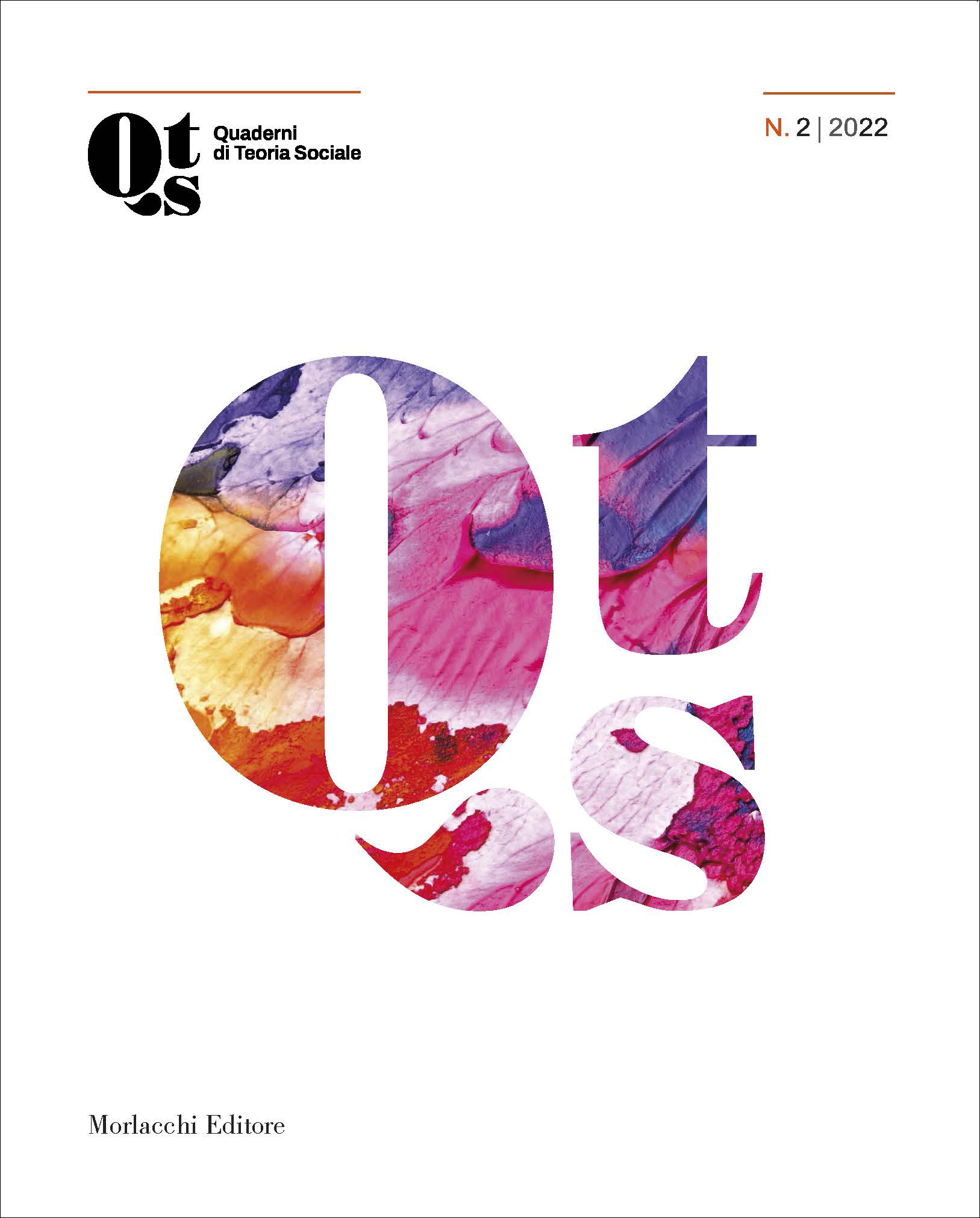Ideologia e apertura: oltre l’impero dell’epistemico
DOI:
https://doi.org/10.57611/qts.v1i2.176Parole chiave:
Self-constitution, Pluralism, ReasonabilityAbstract
How to reformulate a normative, and not simply descriptive, concept of ideology consistently with the “linguistic turn”? Does the perception of being “thrown” in a horizon of “reasonable pluralism” enjoin us to relinquish the normative notion of ideology? The article suggests that the fact of reasonable pluralism enjoins us not to give up, but to reconceive ideology along “practical” lines on two entirely new bases. The first basis (offered by Arendt and Rawls) consists in taking distance from the idea that right things are right because they ultimately reflect something true, and that ideologies then necessarily embed some kind of epistemic inadequacy. The second basis draws on the theories of self-constitutions (Korsgaard, Larmore, Frankfurt), which posit that a subject becomes a subject by making (and keeping) certain commitments. Action that radically violates these constituting commitments detracts from the subjecthood of the subject and brings a quality of wantonness to it. Ideology can then be reconceptualized as interference with the relation of the subject to its constitutive commitments. Ideology reduces the subject’s openness to the world, leads the subject to an ungrounded closure vis-à-vis the world, or exposes the subject to a destructive dispersion beyond its ability to recover integration.
Riferimenti bibliografici
Durkheim, E.
, Le forme elementari della vita religiosa, Edizioni di Comunità, Milano, 1963.
Ferrara, A.
, La forza dell’esempio. Il paradigma del giudizio, Feltrinelli, Milano.
, La fine del postmoderno nell’orizzonte post-moderno, Quaderni di teoria sociale, pp. 65-96.
, Rousseau and Critical Theory, Brill, Leyda-Boston.
a, Come continuare a parlare di ideologia entro un orizzonte post-moderno, Rassegna Italiana di Sociologia, Vol. 59, 3, pp. 515-535.
b, Exemplarity in the Public Realm, Law and Literature, Vol. 30 (3), pp. 387-399.
, Sideways at the entrance of the cave: A pluralist footnote to Plato, Philosophy and Social Criticism, 2019, Vol. 45 (4), pp. 390-402.
Ferrara, A., Michelman, F.I.
, Legitimation by Constitution. A Dialogue on Political Liberalism, Oxford University Press, Oxford, 2021.
Frankfurt, H.
, The Importance of What We Care About. Philosophical Essays (1988), Cambridge University Press, Cambridge.
Korsgaard, Chr.
, The Sources of Normativity, Cambridge University Press, Cambridge.
, Self-Constitution, Oxford University Press, Oxford.
Larmore, Ch.
, Les pratiques du moi, PUF, Parigi.
Mannheim, K.
, Ideologia e utopia, il Mulino, Bologna.
Rawls, J.
, Kantian Constructivism in Moral Theory: The Dewey Lectures 1980, Journal of Philosophy, 77, 9, pp. 515-572.
, Liberalismo Politico (1993), Einaudi, Torino, 2012.
Rousseau, J.J.
, Il contratto sociale (1762), con intr. di A. Burgio, Feltrinelli, Milano.
Searle, J.
, Speech Acts. An Essay in the Philosophy of Language, Cambridge University Press, Cambridge.
Taylor, Ch.
, The Ethics of Authenticity, Harvard University Press, Cambridge, MA.
, A Secular Age, Harvard University Press, Cambridge, MA.
Weber, M.
, Il metodo delle scienze storico-sociali, Einaudi, Torino, 1974.
##submission.downloads##
Pubblicato
Fascicolo
Sezione
Licenza
Copyright (c) 2022 Alessandro Ferrara

Questo lavoro è fornito con la licenza Creative Commons Attribuzione - Non commerciale 4.0 Internazionale.
<a rel="license" href="http://creativecommons.org/licenses/by-nc/4.0/"><img alt="Licenza Creative Commons" style="border-width:0" src="https://i.creativecommons.org/l/by-nc/4.0/88x31.png" /></a><br />Quest'opera è distribuita con Licenza <a rel="license" href="http://creativecommons.org/licenses/by-nc/4.0/">Creative Commons Attribuzione - Non commerciale 4.0 Internazionale</a>.






